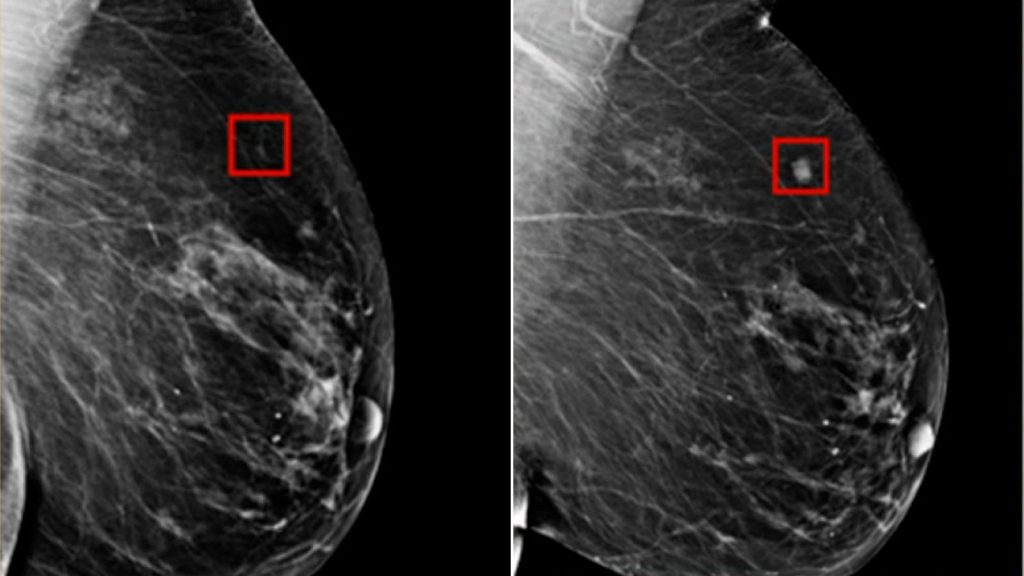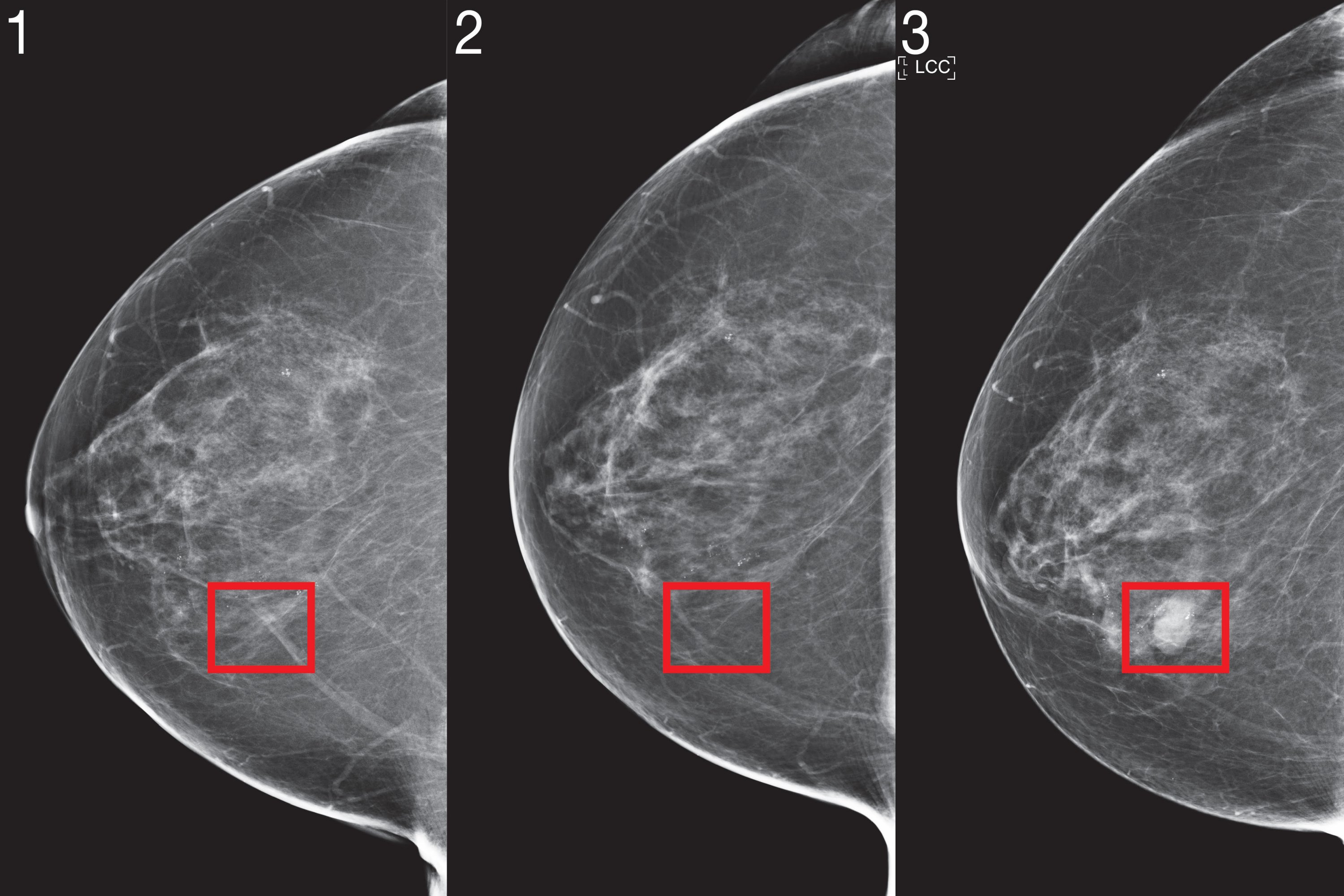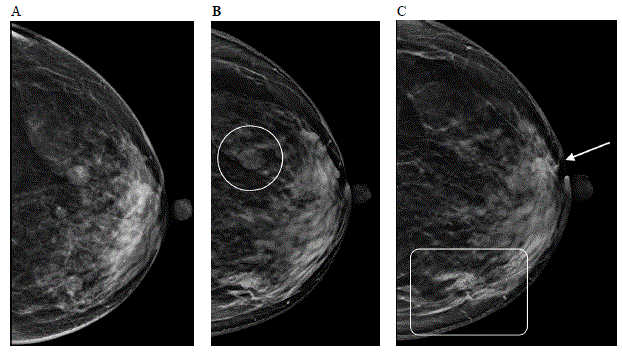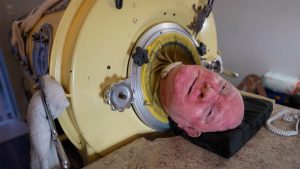
Artificial Intelligence (AI) is revolutionizing healthcare by enhancing cancer detection, especially in breast cancer. Recent studies have shown that AI can detect breast cancer up to five years before a clinical diagnosis is made, providing doctors with critical information that can lead to earlier interventions and improved patient outcomes.
As AI technology continues to evolve, it offers significant advancements in early detection, predictive medicine, and personalized treatment plans for cancer patients. This article explores the transformative impact of AI on breast cancer care and its potential to shape the future of oncology.
Traditional Mammography Limitations and the Role of AI
Mammography has long been a primary tool for detecting breast cancer, but it has notable limitations. Traditional mammograms often identify tumors only after they become visible, which means cancers can grow undetected for years before becoming noticeable. Furthermore, mammograms may miss some cancers, especially in dense breast tissue.
AI tools like INSIGHT MMG, developed for breast cancer detection, are helping to overcome these challenges. Unlike traditional mammography, AI analyzes mammograms with greater precision, detecting subtle patterns that might be invisible to the human eye. By studying these patterns, AI can identify potential cancers even before they are clinically detectable【source: National Cancer Institute】.
A groundbreaking study from Norway demonstrated that AI could accurately predict breast cancers up to six years before a clinical diagnosis, highlighting AI’s potential in early detection and intervention【source: Lancet Oncology】.

AI’s Success in Improving Detection Rates
AI’s ability to enhance detection rates is evident in multiple studies. In Germany, AI-powered tools improved breast cancer detection by 17.6%, allowing for earlier identification of cancer without increasing the number of false positives【source: Journal of Medical Imaging】. This is a critical improvement since false positives can lead to unnecessary biopsies, anxiety, and treatment delays. The ability to accurately detect cancer at earlier stages not only improves patient outcomes but also reduces the overall burden on healthcare systems.
By analyzing a large volume of mammogram images and detecting patterns that human radiologists may overlook, AI tools have the potential to drastically reduce the gap in early diagnosis【source: Radiological Society of North America】.

Predictive Medicine and Personalized Treatment
AI is also making strides in predictive medicine, which anticipates a patient’s risk of developing cancer or experiencing a recurrence. AI tools can analyze vast amounts of data, including medical histories, lifestyle factors, and imaging results, to predict cancer risks with remarkable accuracy【source: American Cancer Society】.
At Weill Cornell Medicine, AI-powered liquid biopsies have been shown to detect cancer recurrences months or even years earlier than traditional methods. This advancement is particularly important for patients who are in remission, as early detection of recurrence can lead to timely interventions that improve long-term survival rates【source: Nature Reviews Clinical Oncology】.
By providing doctors with more precise information about a patient’s cancer progression, AI enables personalized treatment plans. These plans can be tailored to the specific characteristics of a patient’s cancer, optimizing the effectiveness of treatments like chemotherapy, immunotherapy, or targeted therapies【source: National Institutes of Health】.Overcoming Challenges in AI Cancer Detection
Despite its potential, the integration of AI into breast cancer detection and treatment faces several challenges. One of the main concerns is bias in AI algorithms, which can occur if the training data used to develop AI systems does not adequately represent diverse patient populations. This can lead to less accurate predictions for certain demographic groups, particularly those underrepresented in medical research【source: The Lancet Digital Health】.
Another obstacle is regulatory approval. While AI has demonstrated its potential in detecting and diagnosing diseases like breast cancer, gaining approval from health authorities, including the U.S. Food and Drug Administration (FDA), can be a lengthy and complex process. Striking the balance between innovation and safety is key to ensuring that AI-based tools are both effective and reliable for clinical use【source: U.S. FDA】.
The Future of AI in Breast Cancer Care
Looking ahead, AI’s role in breast cancer care is expected to expand, with the technology paving the way for innovations such as personalized vaccines designed to target individual cancer cells. These vaccines could significantly improve survival rates by stimulating the immune system to fight specific cancer cells, marking a major advancement in the field of precision oncology【source: American Association for Cancer Research】.
Furthermore, AI’s ability to predict treatment responses could lead to more customized and effective therapies. By analyzing how a patient’s cancer behaves and how it might respond to various treatments, AI tools can help oncologists choose the most appropriate course of action, potentially reducing unnecessary treatments and side effects.

Conclusion: AI’s Promising Future in Early Cancer Detection
AI is undeniably transforming the landscape of cancer care. For breast cancer, in particular, its ability to detect tumors earlier than traditional methods offers the promise of improved patient outcomes and a higher quality of life for those affected by the disease. From enhancing early detection through advanced imaging techniques to predicting treatment responses with personalized medicine, AI has the potential to revolutionize the way we approach cancer care.
While there are challenges in terms of bias, regulation, and integration, the future of AI in oncology remains bright. As research continues to unfold, AI will likely play an increasingly pivotal role in helping to detect, treat, and even prevent breast cancer, ultimately improving the survival rates and quality of life for patients worldwide.
Sources:
- National Cancer Institute – Artificial Intelligence in Cancer Research
- Lancet Oncology – AI in Breast Cancer Prediction
- Journal of Medical Imaging – AI in Mammography
- Radiological Society of North America – AI in Radiology
- Nature Reviews Clinical Oncology – Liquid Biopsy
- American Cancer Society – Personalized Medicine and AI
- The Lancet Digital Health – Addressing Bias in AI
- FDA – AI in Medical Devices
- American Association for Cancer Research – Precision Oncology



